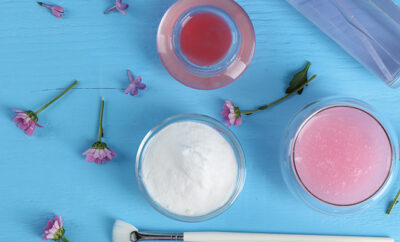
Feeling Better in Your Own Skin: Managing Eczema
Laura’s ongoing battle with eczema has been tumultuous at times. At the peak of her pain, she recalls how her whole body felt like it was on fire as she sat for over eight hours, in the same chair, trying to refrain from scratching her body.
A few weeks before, Laura had accepted a different position at her company and was in the process of adjusting to her new job and hours. While she was excited about the opportunity, she felt the extra stress. The anxiety, change of environment and having to adapt to a new lifestyle caused an extreme eczema flare-up, something she had dealt with for over ten years. While she did everything she could to avoid irritating her skin, such as wearing cotton, hydrating, trying not to sweat, she often felt hopeless. The scratching left her self-conscious and irritable. The trauma was taking a toll.
Laura’s story is like that of many people. According to the National Eczema Association, 31.6 million people in the U.S. have some form of eczema. About one in ten individuals will develop eczema during their lifetime, with most of the occurrences peaking in early childhood.
What is Eczema?
Eczema, also known as atopic dermatitis, is an inflammatory skin condition that causes itching and skin irritation. Scratching the affected areas may injure the skin and raise the risk of skin infection. The condition may also negatively affect a person’s mental health and quality of life.
Although there’s currently no cure for eczema, early diagnosis and treatment may help limit symptoms, prevent complications and improve daily functioning. While eczema can appear at any age, it typically develops in early childhood; the condition may resolve with age for some.
Triggers
Scientists believe eczema is caused by a combination of the environment and genetics, but some triggers can make symptoms worse. When an irritant or an allergen from outside or inside the body “switches on” the immune system, it produces inflammation on the surface of the skin. This inflammation causes the main symptoms of eczema. Heredity also plays a role in eczema. A protein called filaggrin helps people maintain moisture in their skin. If a person has a filaggrin deficiency, this may lead to drier, itchier skin or eczema.
Often, common household items are potential environmental irritants and will cause allergic reactions leading to an eczema flare. Additional common triggers of eczema may include extended exposure to dry air, extreme heat or cold; stress; ingredients in soap, shampoo, bubble bath, body wash or facial cleansers; laundry products; certain fabrics such as wool or polyester. Other irritants include surface cleaners and disinfectants, fragrances in candles and metals, especially nickel, in jewelry or utensils.
Dealing with Eczema
The best way to find out if you have eczema is to consult with a dermatologist or other healthcare provider that has experience diagnosing and treating it. While there is no cure for eczema, there are helpful treatments that can make a world of difference in daily life. Some are medical grade moisturizing creams; prescriptions, including topical, injectable and oral; over-the-counter products; phototherapy or light therapy; and natural and alternative treatments such as cryotherapy, or cooling the surface of the skin, and acupuncture.
For most people, knowing their own body can help control flare-ups. Understanding triggers and avoiding exposure are important, while being consistent in bathing and moisturizing habits is also helpful. In addition, using prescription medication and over-the-counter creams as prescribed will keep eczema flare-ups in check. Experts also note that everyone is different, so one person’s symptoms or triggers may not look like someone else’s.
New Hope for Eczema Sufferers
In January 2022, the Food and Drug Administration approved new drugs from Pfizer and AbbVie for treating patients with moderate to severe atopic dermatitis, or eczema, who do not respond to other treatments or when the use of other treatments is not recommended. Both drugs belong to a class called JAK inhibitors, which block inflammation-causing enzymes.
Late last year, the FDA also approved a new topical cream, Opzelura™, for the short-term and noncontinuous treatment of mild to moderate atopic dermatitis in patients age 12 years and older. A clinical trial used as the basis for FDA approval found that almost 54 percent of the teens and adults with atopic dermatitis who used the cream had clearer skin after eight weeks, compared with 15.1 percent of those who used a nonmedicated placebo cream.
Along with a doctor’s advice and consistent skin care, some people may find inspiration by following eczema influencers on social media who share useful tips and ideas. Getting plenty of sleep and addressing stress can also help. Until there’s a cure, managing eczema is the goal so we can feel better in the skin we’re in every day.
Sources: nationaleczema.org, metro.co.uk, healthline.com and everydayhealth.com.







